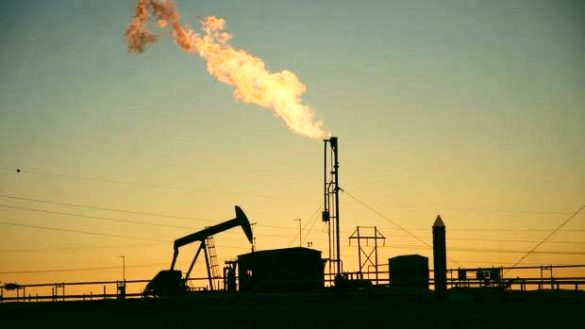Nigeria, Africa’s largest oil producer, is losing billions of dollars in gas royalties and penalties due to its persistent gas flaring problem, according to a recent report by the Nigerian Extractives Industries Transparency Initiative (NEITI).
Gas flaring is the burning of natural gas that is associated with oil extraction. It is a wasteful and harmful practice that contributes to climate change and air pollution. It also deprives the country of a valuable resource that could be used for power generation, industrial development, and export.
The NEITI report, which covers the year 2021, reveals that Nigeria has an unpaid gas royalty of $559.8 million and an unpaid gas flare penalty of $828.8 million. These amounts are based on the unreconciled figures between the government and the oil companies operating in the country. The report suggests that a significant volume of gas was flared without corresponding payments, posing a challenge to the global zero emissions initiative.
According to the World Bank, Nigeria is the sixth largest gas-flaring country in the world, accounting for about 7% of the global total in 2022. The country flared 187.6 billion standard cubic feet (SCF) of gas in 2022, equivalent to $656.6 million in lost revenue. This amount could have generated as much electricity as sub-Saharan Africa currently produces in a year.
Nigeria has set a target to end routine gas flaring by 2030, in line with the United Nations Sustainable Development Goals and the Paris Agreement on climate change. The country also launched the Nigerian Gas Flare Commercialisation Programme (NGFCP) in 2016, with the aim of selling over 700 million SCF of gas per day flared at 178 different locations. However, the programme has faced several delays and challenges, such as the COVID-19 pandemic, the Petroleum Industry Act, and the lack of adequate infrastructure and investment.
Despite these difficulties, Nigeria has the potential to harness its abundant gas resources for economic and environmental benefits. The country has the largest proven gas reserves in Africa, estimated at 203 trillion cubic feet (Tcf) as of 2021. The country also has a growing domestic and regional market for gas, especially for power generation, industrial use, and liquefied natural gas (LNG) exports.
Moreover, Nigeria could explore the emerging opportunities in green hydrogen, which is produced from renewable energy and water. Green hydrogen is seen as a promising solution for decarbonising the energy sector and diversifying the export portfolio. Nigeria has abundant renewable energy sources, such as solar, wind, biomass, and hydropower, that could be used to produce green hydrogen. Several African countries, such as Morocco, South Africa, and Egypt, have already embarked on green hydrogen projects and partnerships.
Nigeria’s gas flaring problem is not only a loss of revenue but also a threat to the environment and public health. The country needs to take urgent and decisive action to end this practice and utilise its gas resources for sustainable development. By doing so, Nigeria could become a leader in the energy transition and a net-zero emission country by 2060.
Source: Nairametrics



